


Chess News



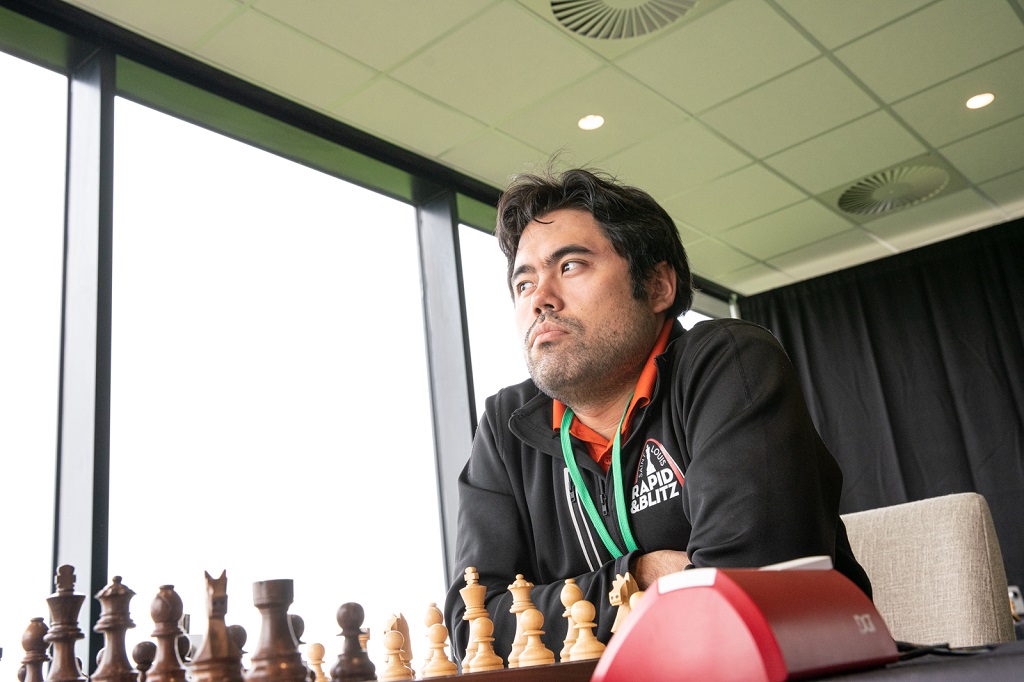

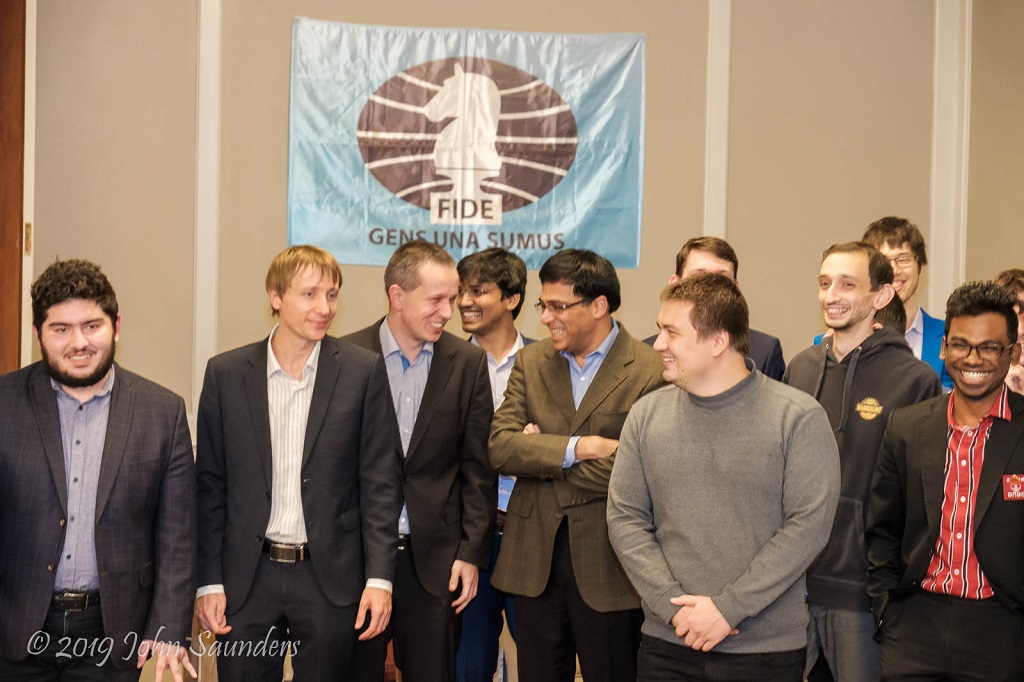

The FIDE chess.com Grand Swiss is an eleven-round event that serves as qualifier to the 2020 Candidates Tournament. It takes place from the 10th to the 21st of October, with a rest day on the 16th. You can find more info here.
Many times we hear stories about newcomers making a name for themselves with stellar performances against seasoned grandmasters. Not as often, however, we see a player that had been a star reemerge in the mainstage. In the last four weeks, two such stories came to light in the chess world. First, semi-retired grandmaster Teimour Radjabov won the World Cup in Khanty-Mansiysk, and now Wang Hao prevailed in an extremely competitive eleven-round Swiss event with the likes of Carlsen, Caruana, Aronian and Nakamura in the mix.
The 30-year-old from Harbin, the capital of Heilongjiang province in China, was in fact a prodigy. Three years ago, Diana Mihajlova published a two-part profile of the Chinese star, which includes two curious facts that deserve to be highlighted. First, the fact that he learned to play chess almost by chance:
He initially was attracted by xiangqi, the Chinese version of chess, but the school’s western chess teacher told him that good western chess players have the opportunity to travel abroad. That swayed him to turn his interest towards chess and to study it voraciously. The results were astounding and unexpected even to himself.
His initial progress was startling, so much so that he got the GM title without having claimed either the FM or the IM titles in the process:
[Three good performances in 2005] provided him with the necessary three GM norms, and at the age of 16 Wang Hao was a full-fledged grandmaster. He is one of the rare ones in the history of chess to have jumped straight to the GM title, bypassing both the FM and IM titles. Garry Kasparov, Vladimir Kramnik and Boris Gelfand are also known to have become grandmasters without the IM titles.
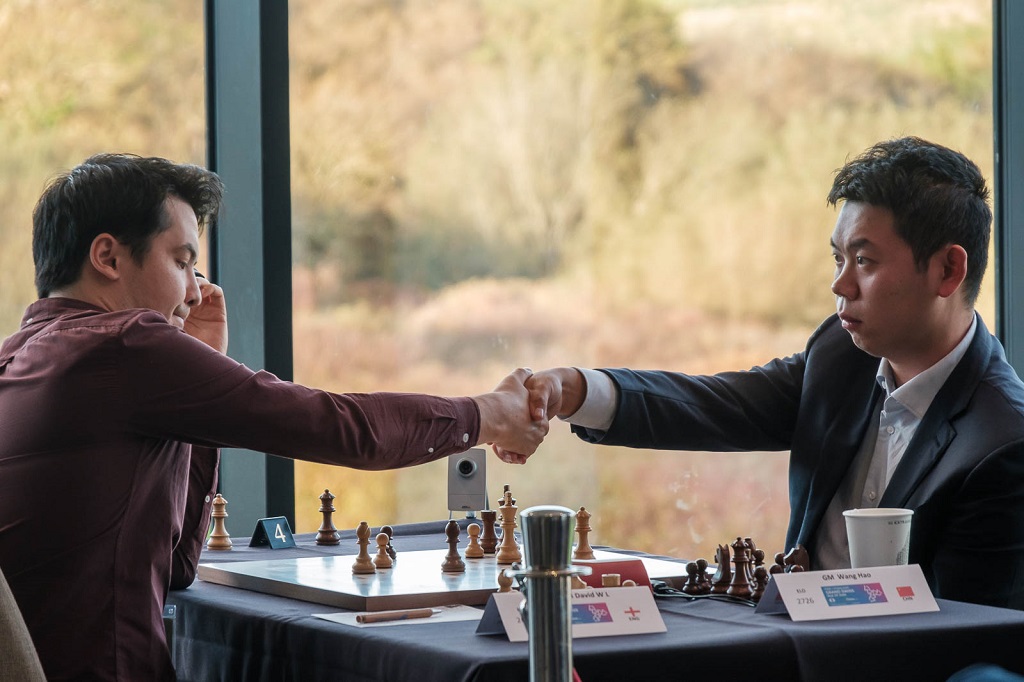
The moment David Howell resigned, giving Wang Hao first place in the Isle of Man | Photo: John Saunders
Having received the biggest title in chess in such remarkable fashion was followed by a rise to the elite. While being a regular in first-rate tournaments, Wang Hao managed to win the 2012 Biel Tournament, ahead of Magnus Carlsen. On that occassion, the 'football system' was used at the Swiss event (it was a double round robin...but it was played in Switzerland). The Chinese scored a whopping six wins but also lost three times, while Carlsen was undefeated with four wins — had the regular pointing system been in use, Carlsen would have won, but Wang's victory is a reflection of his admirable fighting spirit.
On January 2013, the Chinese achieved his peak rating of 2752, but then a slow descent began to take place, with his Elo dropping down to 2670 four years later. Nevertheless, Wang kept showing intermittent good performances in open tournaments — his latest triumph was getting clear first place at this year's HD Bank Open.

Wang Hao had some ups and downs, but he is now set to play the biggest event of his career so far | Photo: Maria Emelianova / chess.com
With his victory in the Isle of Man, Wang Hao secured a spot at next year's Candidates Tournament. When Fiona-Steil Antoni asked him about his plans to face such a strong challenge, he confessed:
My problem is that I don't have a team, and probably I will try to find some friends and to create a team...to be better.
Later he explained how he does most of his training with his students. Wang helps around eight players privately, most of which are already professional competitors.
He will be one of at least two Chinese players fighting to get a chance to face Carlsen in the next World Championship match, as his compatriot Ding Liren already secured his ticket. This is a great step forward for Chinese chess, as Ding's participation in the previous Candidates was the first one ever for a player from that country.

Pure happiness | Photo: John Saunders
As we mentioned in our previous report, all was to be decided on the four top boards. Hikaru Nakamura and Levon Aronian were in a tough spot, as they were facing Fabiano Caruana and Magnus Carlsen — the strongest players in the world — while in must-win situations. Wang, on the other hand, had already confronted both illustrious opponents in previous rounds, and was now paired up against David Howell. The other contenders were Russians Kirill Alekseenko and Nikita Vituigov.
The first of these four games to finish was Nakamura v Caruana, a 31-move draw out of a Petroff that turned into an Exchange Variation of the French Defence. Nakamura had a very slight edge, but Caruana managed to neutralize all the threats swiftly. At that point, it seemed likely that 'Fabi' would win the event, as the positions on the remaining relevant boards seemed drawish. But it was not meant to be for the American.
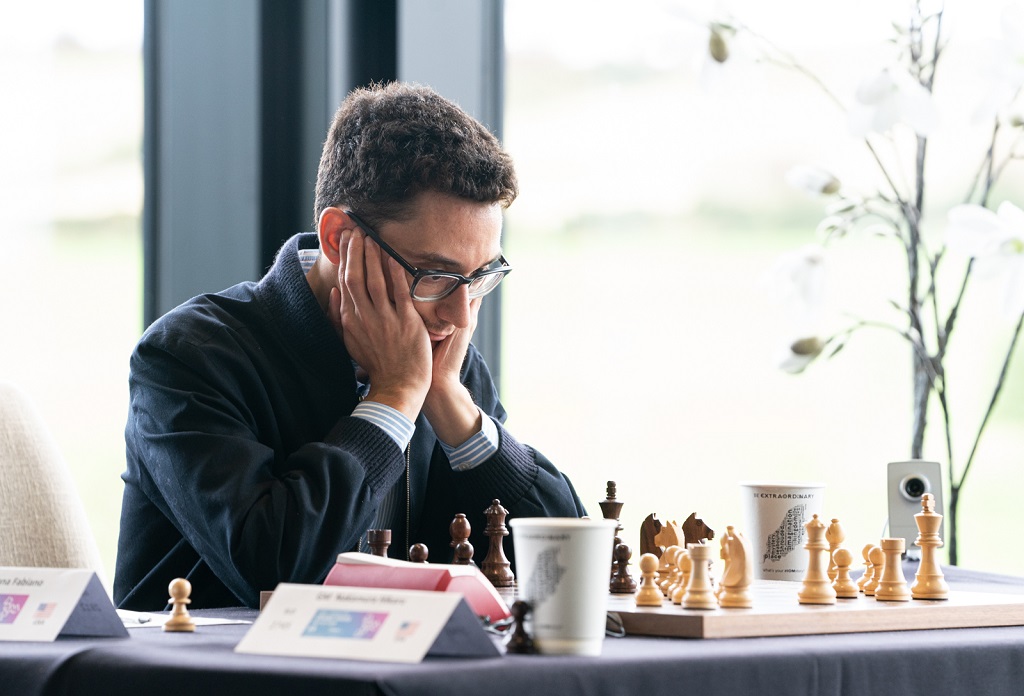
Fabiano Caruana's 8/11 was remarkable nonetheless | Photo: Maria Emelianova / chess.com
Only minutes passed before a second draw was agreed. Aronian could not create enough imbalances in his game against Carlsen, despite having used an ambitious approach in the opening. It was a Nimzo-Indian with 4.f3, in which White got to play a rather flashy move:
Here the game continued with 19.♖c4 ♛e7 20.♖e4 ♛e6 and Aronian mentioned he found nothing better than 21.♗f4, when simplifications are difficult to avoid. After this sequence, the game quickly petered out into a draw.
Nor Aronian nor Carlsen looked particularly happy with the game or the result. The Armenian tried to find a silver lining, but his displeasure was nonetheless apparent:
This year I've been playing terribly, so at least scoring a decent amount of points is already a relief. But obviously I came very close. I mean, with Anton, I should have converted that game, so the general disappointment is of course there.
Carlen, in the meantime, overcame Ding Liren's unbeaten streak by going undefeated for no fewer than 101 classical games. For the Norwegian, keeping this streak going has worked as a way to compensate for what he considers to be a period of unsatisfactory performances:
I feel like a hundred is kind of a magic number — I never thought I'd get there. I had some luck, of course, also in this tournament, but now that I haven't been playing so well recently, at least that is a big reason to be happy.
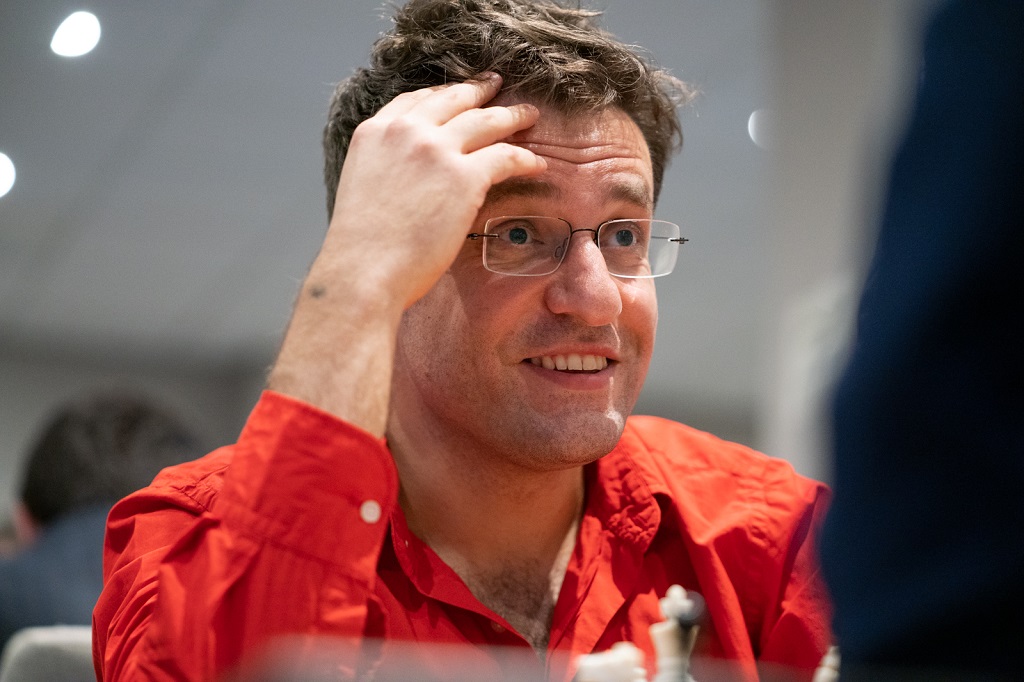
The post-mortem session seems to have improved Levon Aronian's mood significantly | Photo: Maria Emelianova / chess.com
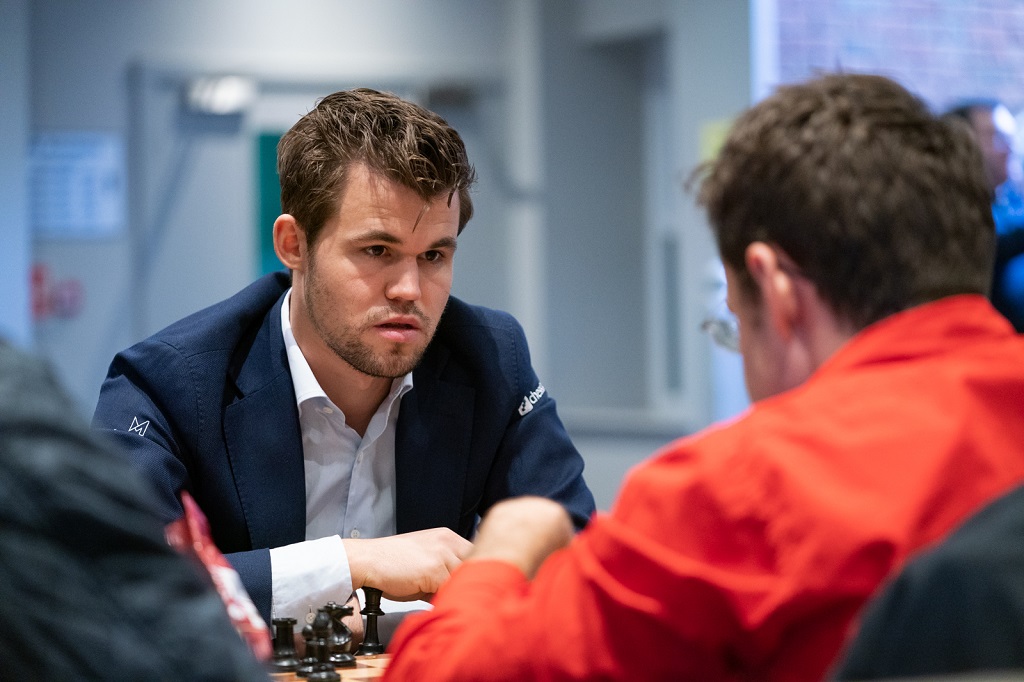
World champion Magnus Carlsen | Photo: Maria Emelianova / chess.com
When Carlsen was interviewed, he assessed the position in Wang v Howell as most likely leading to a draw. By then, the Englishman was already defending with rook and bishop against a queen:
This position arose from a Gruenfeld Defence in which Black had managed to equalize without any hassle. But Howell needed a win and, already hurried by the clock, went for 18...♝d5, allowing 19.♖d1 ♝xb7 20.♖xd8 ♜xd8. Wang Hao later mentioned that he could not understand why his opponent opted for this line, which leaves Black with no chances to win. Four moves later, Howell faltered decisively, and the result was no longer in doubt.
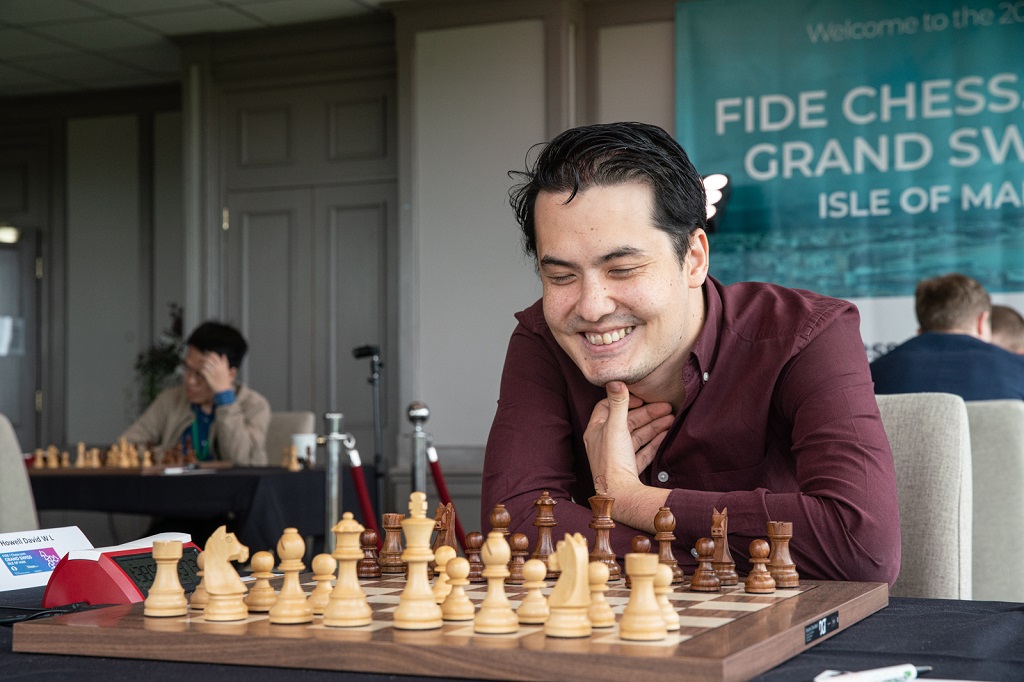
David Howell in good spirits before the game | Photo: John Saunders
Only one of the four relevant games was still in play. Kirill Alekseenko had obtained an edge in the opening, but Nikita Vitiugov's resourcefulness in a complex position was enough to keep things under control. Alekseenko kept trying until move 56, but the eventual draw meant both Russians ended sharing third place on 7½ out of 11.
Besides the players mentioned above, David Anton also finished on 7½, thanks to a final round win over Robert Hovhannisyan. Anton bounced back from a loss against Caruana in the penultimate round, after having shared the lead for a couple of days.
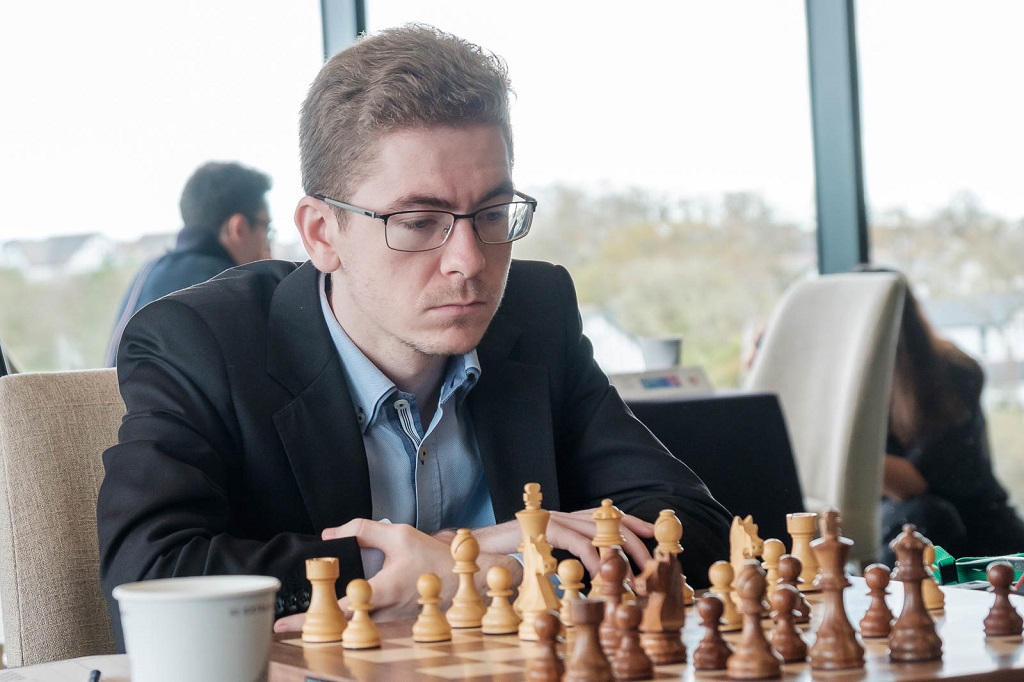
David Anton Guijarro | Photo: John Saunders
First place among the women went to Harika Dronavalli, who scored 5½ points against eleven 2600+ players. The Indian player gained 23 rating points, climbing four places in the women's ranking, thus joining the world top 10. Also on 5½ out of 11 finished 22-year-old Dinara Saduakossova from Kazakhstan, but she had an inferior tiebreak score. Saduakassova gained 24 rating points and climbed eight places in the ranking, up to number 11.
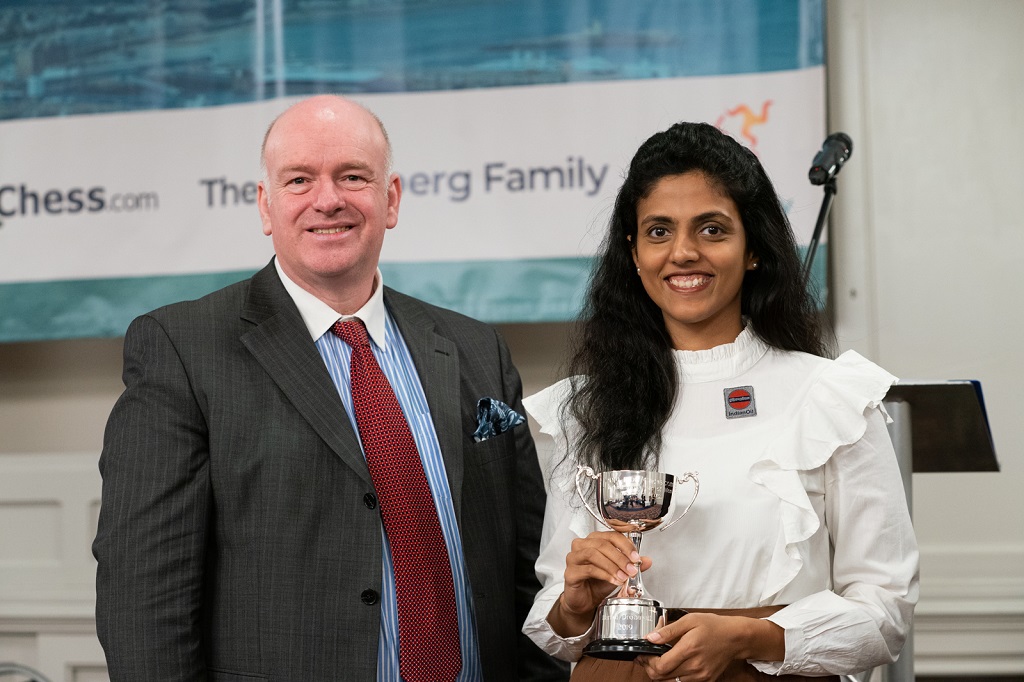
First among the women — Harika Dronavalli | Photo: Maria Emelianova / chess.com
GM Simon Williams reviews the highlights of the day
Commentary by GM Daniel King and IM Anna Rudolf
| Rk. | Name | Pts. | TB1 |
| 1 | Wang Hao | 8,0 | 2735 |
| 2 | Caruana Fabiano | 8,0 | 2720 |
| 3 | Alekseenko Kirill | 7,5 | 2716 |
| 4 | Aronian Levon | 7,5 | 2708 |
| 5 | Anton Guijarro David | 7,5 | 2702 |
| 6 | Carlsen Magnus | 7,5 | 2698 |
| 7 | Nakamura Hikaru | 7,5 | 2674 |
| 8 | Vitiugov Nikita | 7,5 | 2663 |
| 9 | Grischuk Alexander | 7,0 | 2682 |
| 10 | Paravyan David | 7,0 | 2675 |
| 11 | Howell David W L | 7,0 | 2657 |
| 12 | Vidit Santosh Gujrathi | 7,0 | 2644 |
| 13 | Le Quang Liem | 7,0 | 2631 |
| 14 | Maghsoodloo Parham | 6,5 | 2703 |
| 15 | Abasov Nijat | 6,5 | 2703 |
| 16 | Kovalev Vladislav | 6,5 | 2699 |
| 17 | Fedoseev Vladimir | 6,5 | 2691 |
| 18 | Rakhmanov Aleksandr | 6,5 | 2689 |
| 19 | Kryvoruchko Yuriy | 6,5 | 2680 |
| 20 | Lupulescu Constantin | 6,5 | 2676 |
All games available at Live.Chessbase.com
| Advertising |